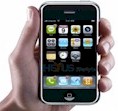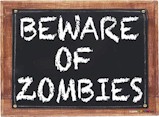| |
Epidemiology
News Briefs
|
 |
Sweet and Vicious—The
Case Against Sugar
The science writer
Gary Taubes was being his provocative self as he has been
in the past about the field of epidemiology and about
dietary components and chronic diseases. The occasion for
his latest report came as the cover story about sugar for
a health and wellness issue of the New York Times Sunday
magazine in April.
Taubes has been persuaded that
sugar is toxic by the evidence and arguments made
principally by Robert Lustig of the University of
California San Francisco School of Medicine. The mechanism
envisaged is for high levels of sugar consumption to cause
fat to accumulate in the liver, followed by insulin
resistance and metabolic syndrome which in turn can lead
to heart disease, diabetes, and obesity. According to
Taubes, sugar and high fructose corn syrup “…could be
toxic, but they take years to do their damage. It doesn’t
happen overnight. Until long term studies are done, we
won’t know for sure.” And some cancers such as breast
cancer may also be one consequence of insulin resistance
and metabolic syndrome.
Taubes confesses in the
article that sugar scares him. “I’d like to eat it in
moderation, I’d certainly like my two sons to be able to
eat it in moderation, to not overconsume it, but I don’t
actually know what that means, and I’ve been reporting on
this subject and studying it for more than a
decade…Officially I’m not supposed to worry because the
evidence isn’t conclusive, but I do.” |
|
|
|
Cell Phones and
Cancer—A Journalist’s Highly Regarded Review of the
Evidence
In a review article
of cell phones and brain cancer which an epidemiology
colleague has called a model of balanced investigation and
presentation, Columbia University’s Siddhartha Mukherjee,
has concluded that “…as of now, the evidence remains far
from convincing.” He bases this conclusion on the fact
that casting a wide-net to incriminate cell phones “has
yet to find solid proof of risk for cellphone radiation.
And while more definitive studies are needed, he raises
the possibility that even these studies might not give us
the degree of proof we want.
In the article, he seeks to
remind those who may be disappointed by the failure to
incriminate cell phones that we need standards by which
not only to rule in carcinogens, but also to rule them
out. Otherwise, he says, the effect is like crying wolf
too often. People get numb to your warnings. Thus, failing
to rule potential carcinogens in or out leads to a
degeneration of our scientific language about cancer.
|
 |
|
|
|
 |
This Time Harvard Study
Says Coffee May Reduce The Risk of Cancer
Senior
epidemiologists easily remember the study reported in the
NEJM on March 12, 1981 by investigators at Harvard about a
possible relationship between coffee and pancreatic
cancer. The report is infamous in the annals of
epidemiology because of the publicity it received and
because the association is often referred to by
epidemiologists as the example of a false positive
association. At the time, the lead investigator and well
known epidemiologist Brian MacMahon was quoted as saying
that he had stopped drinking coffee.
Now it is ironic that another
report should come from Harvard, this time pointing to the
potential benefits of coffee in protecting against the
most lethal or advanced forms of prostate cancer.
Investigators studied 47,911 men in the Health
Professionals Follow Up Study who reported their coffee
consumption patterns every four years between 1986 and
2008. Over this period, 5,035 cases of prostate cancer
were found, including 642 that were lethal. In the Harvard
study, consuming six or more cups daily produced an 18%
lower risk of any form of prostate cancer and a 60% lower
risk of developing lethal prostate cancer. The risk
reductions were found with either regular or decaffeinated
coffee.
The authors did not go out on
a limb to recommend coffee drinking as a cancer preventive
measure at this point, stating “it is premature to
recommend that men increase their coffee intake to reduce
advance prostate cancer risk based on this single study.
However, our findings are potentially important given the
lack of identified modifiable risk factors for advanced
prostate cancer.” |
|
|
|
CDC Tongue In Cheek
Blog Post Gets Wide Circulation
You just never know. CDC routinely posts
information on its public health preparedness blog and
gets a few thousand hits. Then it posts one about
preparing for a “zombie apocalypse” and the servers crash
because so many people want to read about the upcoming
disaster. In the process, hopefully they learn what it
takes to be prepared for a public disaster and CDC gets
its message, or at least part of it, across to a wide
range of Americans. Go figure. Perhaps epidemiologists and
other scientists with a message to convey that is not
getting through, say on climate change or autism and
vaccines could use this approach. Maybe a tongue in cheek
post about how Gravity Is Not A Law After All or How
Evolution Has Not Really Happened. To read the original
“Preparedness 101: Zombie Apocalypse” visit
http://blogs.cdc.gov/publichealthmatters/2011/05/preparedness-101-zombie-apocalypse/
|
 |
|
|
|
| |
|
|